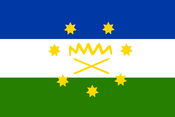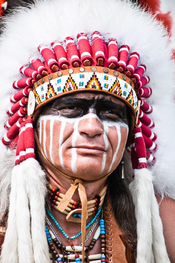High Chieftain: Difference between revisions
Jump to navigation
Jump to search
No edit summary |
No edit summary |
||
| Line 15: | Line 15: | ||
|residence = Agitsta'ti'yi | |residence = Agitsta'ti'yi | ||
|seat = | |seat = | ||
|incumbentsince = | |incumbentsince = August 6th, 2002 | ||
|preceded by = [[Sequoyah]] | |preceded by = [[Sequoyah]] | ||
|termlength = Ten Years | |termlength = Ten Years | ||
Revision as of 02:21, 7 August 2019
This article is incomplete because it is pending further input from participants, or it is a work-in-progress by one author. Please comment on this article's talk page to share your input, comments and questions. Note: To contribute to this article, you may need to seek help from the author(s) of this page. |
| High Chieftain of The Meoquanee Nation | |
|---|---|
 Flag of The Meoquanee | |
| Council of Seven Fires | |
| Residence | Agitsta'ti'yi |
| Term length | Ten Years |
| Constituting instrument | Meoquanee Nation Code |
| Formation | 1797 |
The title of "High Chieftain" (Meoquanee: ᎢᎬᏱ ᎤᎬᏫᏳᎯ) created in 1794 when the seven tribes came together,forming the Meoquanee Nation. The High Chieftain is the principle speaker and ceremonial head of the Council of Seven Fires as well as the de-facto head of state of the Meoquanee Nation. The High Chieftain is considered to hold all political power within the Meoquanee Nation and is elected among the Seven Chiefs of the Meoquanee tribes. The High Chieftain is refered to as "Uku" or "First Beloved Man" within the Meoquanee tribes.
